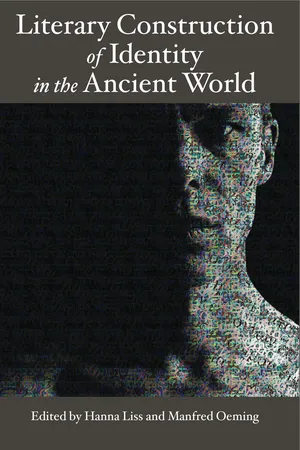
- 384 pages
- English
- PDF
- Available on iOS & Android
About This Book
Encountering an ancient text not only as a historical source but also as a literary artifact entails an important paradigm shift, which in recent years has taken place in classical and Oriental philology. Biblical scholars, Egyptologists, and classical philologists have been pioneers in supplementing traditional historical-critical exegesis with more-literary approaches. This has led to a wealth of new insights. While the methodological consequences of this shift have been discussed within each discipline, until recently there has not been an attempt to discuss its validity and methodology on an interdisciplinary level. In 2006, the Faculty of Bible and Biblical Interpretation at the Hochschule für Jüdische Studien, Heidelberg, and the Faculty of Theology at the University of Heidelberg invited scholars from the U.S., Canada, the Netherlands, Israel, and Germany to examine these issues. Under the title “Literary Fiction and the Construction of Identity in Ancient Literatures: Options and Limits of Modern Literary Approaches in the Exegesis of Ancient Texts,” experts in Egyptology, classical philology, ancient Near Eastern studies, biblical studies, Jewish studies, literary studies, and comparative religion came together to present current research and debate open questions.
At this conference, each representative (from a total of 23 different disciplines) dealt with literary theory in regard to his or her area of research. The present volume organizes 17 of the resulting essays along 5 thematic lines that show how similar issues are dealt with in different disciplines: (1) Thinking of Ancient Texts as Literature, (2) The Identity of Authors and Readers, (3) Fiction and Fact, (4) Rereading Biblical Poetry, and (5) Modeling the Future by Reconstructing the Past.
Frequently asked questions
Information
Table of contents
- Front Cover
- Front Matter
- Part 1: Thinking of Ancient Texts as Literature
- Part 2: The Identity of Authors and Readers
- Part 3: Fiction and Fact
- Part 4: Rereading Biblical Poetry
- Part 5: Modeling the Future by Reconstructing the Past
- Index of Authors
- Index of Scripture